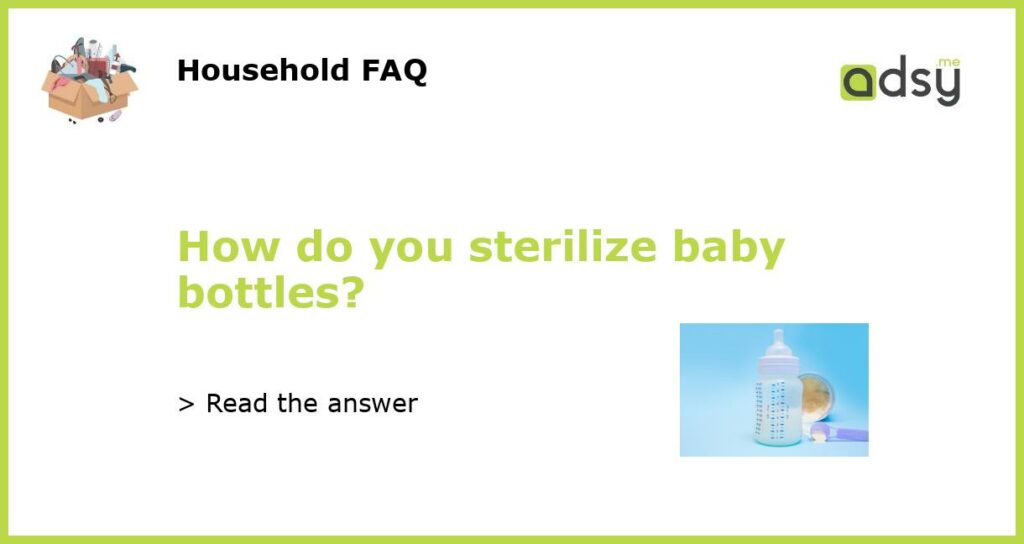How to Sterilize Baby Bottles: A Guide for New Parents
As a new parent, you want to make sure that your baby’s bottles are as clean and sterile as possible. Here’s a guide on how to properly sterilize your baby’s bottles:
Boiling Method
The boiling method is one of the easiest and most popular ways of sterilizing baby bottles. Simply place the bottles, nipples, and any other parts in a pot of boiling water for 5-10 minutes. Then, carefully remove them with tongs and let them cool on a clean surface. Make sure to use enough water to cover all the parts and avoid overcrowding the pot to ensure that everything gets sterilized.
Steam Sterilization
Steam sterilization is another popular method that uses a specialized appliance, such as an electric bottle sterilizer, to clean and sterilize the bottles. This method is quick and efficient, with most sterilizers taking less than 10 minutes to complete a cycle. After the sterilization cycle is complete, let the bottles cool before handling them.
Chemical Sterilization
Chemical sterilization involves using a solution of sodium hypochlorite (a bleach solution) or hydrogen peroxide to clean and sterilize the bottles. Follow the instructions on the product carefully and make sure to rinse the bottles thoroughly with water after the sterilization process. Although effective, this method may leave a strong smell or taste that can be unpleasant for the baby.
Dishwasher Sterilization
If you have a dishwasher, you can use it to sterilize your baby’s bottles. Make sure to load the bottles in a way that exposes all sides to the water and heat, and use the hottest setting available. Avoid using dishwasher detergent or other chemicals, as they can damage the bottles and leave harmful residue. Also, make sure to let the bottles cool before handling them.
Frequency of Sterilization
It is recommended that you sterilize your baby’s bottles at least once a day until they reach the age of one. After that, you can switch to washing them in hot, soapy water or using a dishwasher. However, if your baby is premature, has a weakened immune system, or has been sick, you may need to sterilize the bottles more frequently.
By following these guidelines, you can ensure that your baby’s bottles are clean and sterile, reducing the risk of infections and other health issues.






